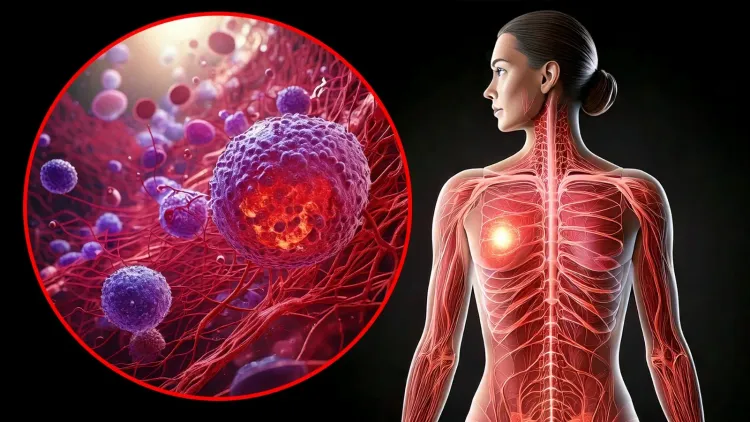Could Australian Researchers Change the Game for Untreatable Cancers?

Synopsis
Key Takeaways
- Australian researchers have initiated a groundbreaking clinical trial.
- The trial focuses on the MYC protein, found in 70% of human cancers.
- An experimental drug, PMR-116, aims to disrupt cancer growth mechanisms.
- The innovative "basket" approach groups participants by molecular biomarkers.
- This research could redefine treatment strategies for aggressive cancers globally.
New Delhi, June 14 (NationPress) Researchers from Australia have initiated a groundbreaking clinical trial aimed at addressing aggressive cancers that were previously considered untreatable.
This trial, spearheaded by a group from the Australian National University (ANU), focuses on malignancies driven by the elusive MYC protein—a protein involved in 70% of human cancers, as reported by Xinhua news agency.
If successful, this trial could revolutionize treatment approaches for aggressive cancers around the world, providing a framework for addressing other complex molecular diseases, according to the research team.
The study will evaluate an experimental drug, PMR-116, aimed at disrupting the mechanisms that promote cancer growth in patients with prostate, breast, ovarian, and blood cancers, or MYC-driven tumors.
The MYC protein plays a critical role in regulating cell growth and is often linked to cancer development.
Conducted by ANU in collaboration with Canberra Health Services, the trial utilizes an innovative "basket" approach, grouping participants according to molecular biomarkers rather than cancer types.
This strategy simplifies research by targeting the downstream effects of MYC, inhibiting the cellular processes it triggers rather than attempting to block MYC itself, as explained in the study.
PMR-116, created by ANU researchers and the biotech company Pimera Therapeutics, inhibits ribosomal biogenesis, a cellular function exploited by MYC-driven tumors.
Prof. Mark Polizzotto, a hematologist and lead of the clinical trial, stated, "MYC is one of the most notorious cancer-causing genes, and tumors fueled by MYC overexpression are often among the most aggressive and challenging to treat. With early results of PMR-116 showing promise, we may be able to shift the perception that MYC is 'undruggable.'"
The trial is set to begin patient enrollment at major hospitals in Canberra, Melbourne, and Sydney in late 2025, focusing on patients whose cancers are resistant to standard treatments, according to the research team.
Prof. Ross Hannan, co-developer of PMR-116, emphasized that this approach marks a new frontier in precision oncology, concentrating on the molecular drivers of cancer rather than its location, potentially expediting treatment options for numerous patients globally.










